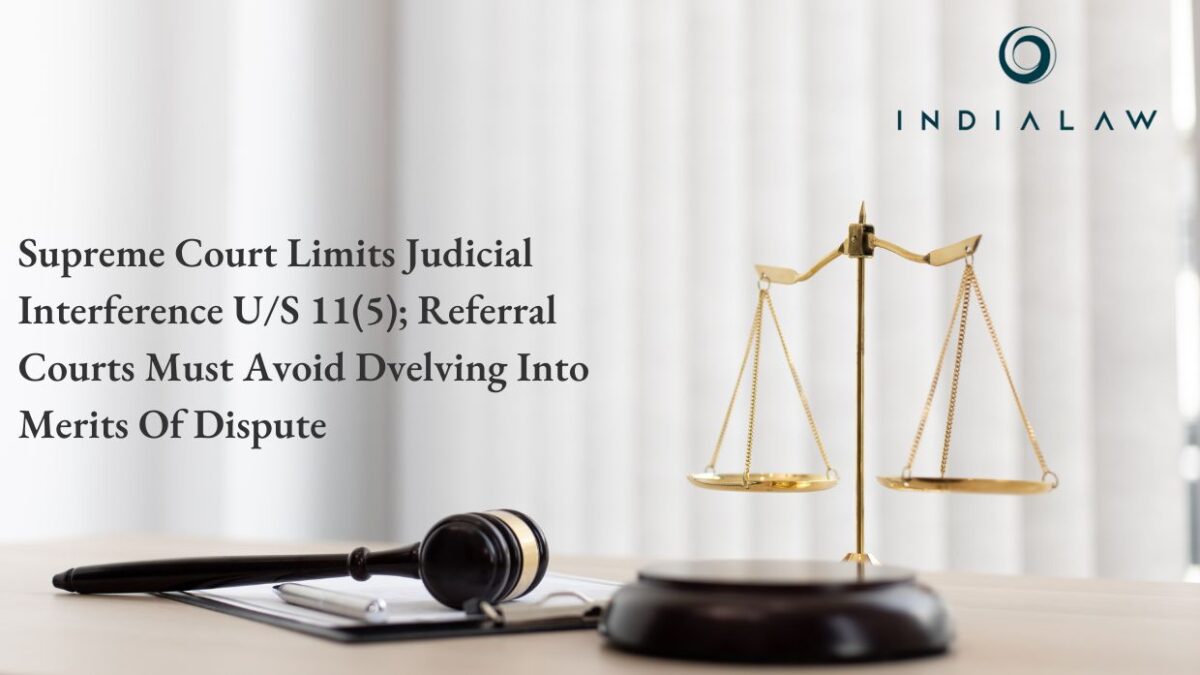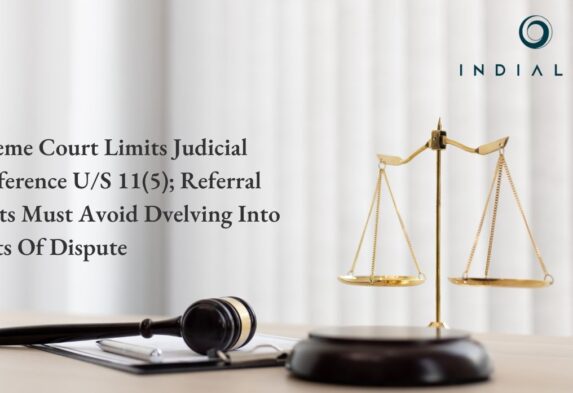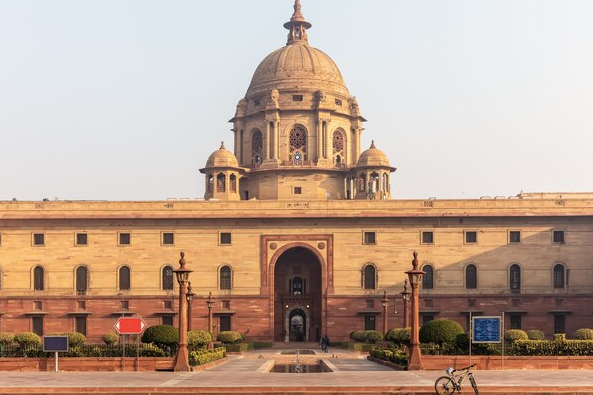Supreme Court Limits Judicial Interference U/S 11(5); Referral Courts Must Avoid Dvelving Into Merits Of Dispute


On 7th November, 2024 the Supreme Court in the case of Goqii Technologies Pvt. Ltd. v. Sokrati Technologies Pvt. Ltd. set aside an order of the High Court of Bombay involving a petition under Section 11(5) of the Arbitration and Conciliation Act, 1996(“Arbitration Act”) reinforcing limited judicial interference of courts in arbitration proceedings. The Supreme Court while emphasizing on the principle of judicial non-interference as fundamental to the arbitral process, restricted the role of a referral courts in determining whether a dispute is capable for arbitration when considering applications to appoint an arbitrator under Section 11(5) under the Arbitration Act.
Table of Contents
Facts
The Appellant provided consultancy services to the Respondent for managing its digital advertising campaigns under a Master Service Agreement (“MSA”). The Respondent raised various invoices under the MSA for the services provided to the Appellant. However, during payment processing, the Appellant became aware of a complaint alleging significant irregularities and malpractice involving Dentsu International Limited, the Respondent’s parent company. Consequently, the Appellant engaged an auditor who was engaged to investigate the Respondent. The auditor later submitted a report revealing irregularities and malpractice by the Respondent.
While there were subsisting disputes ongoing between the parties, the Appellant invoked arbitration under the MSA and filed a petition under Section 11(5) of the Arbitration Act before the Bombay High Court against the Respondent claiming damages for alleged misrepresentations by the Respondent. The High Court, while considering the petition, examined the allegations of fraudulent practices by the Respondent and the controversies highlighted in the audit report.
The High Court conclusively came to dismiss the petition based on the reasoning that the Appellant had failed to establish findings from the report to justify withholding payment to the Respondent and that the Appellant’s attempt to invoke arbitration amounted to a manifestly dishonest claim.
Contentions Raised
The counsel appearing for the Appellant, argued that the scope of interference by a referral court acting in exercise of its jurisdiction under Section 11(5) of the Arbitration Act are limited and at this stage, the referral court must only ascertain whether a prima facie case exists for referring the dispute to arbitration. The High Court was erroneous in taking a full review of the contested facts and exceeded its jurisdiction at this stage. The High Court did not take into account the technical complexity of the issues and ought to have referred the parties to arbitration.
Whereas, the counsel for the Respondents submitted that the High Court must apply a prima facie test tosatisfy that a genuine dispute exists between the parties. A mere inclusion of an arbitration clause in a contract or agreement does not render a matter automatically arbitrable and thus, it is necessary for courts to eliminate and segregate disputes that may be frivolous, or dishonest. The Respondents contended that the Appellant had filed the present petition with a mala fide intent and had approached the court with unclean hands aimed at evading liability for admitted dues.
Observations Of The Supreme Court
The primary question taken in consideration by the Supreme Court in this case was whether the Bombay High Court had committed any error in dismissing the Appellant’s application under Section 11 of the Arbitration Act. In a nutshell, the Supreme Court emphasized on the fundamental role of referral courts in focusing solely on the prima facie existence of an arbitration agreement and confining referral courts from delving into the merits of the dispute.
The Supreme Court while relying on SBI General Insurance Co. Ltd. vs. Krish Spinning reported in 2024 INSC 532, held that scope of inquiry under Section 11 of the Arbitration Act is limited to ascertaining the prima facie existence of an arbitration agreement and that the High Court had exceeded its jurisdiction by undertaking a detailed examination of the factual matrix. Keeping in mind the limited extent of courts in deciding applications under Section 11 of the Arbitration Act, litigation is not an aspect which the referral court should decide at this stage as the arbitrator is equally competent to adjudicate on such subject matter and decide on competency of its own jurisdiction.
With the view to maintain a balance and avoid abuse of the court process, the Supreme Court also prepositioned that proceedings under Section 11 of the Arbitration Act must not be misused by anyone in order to force other party of an agreement to participate in a time-consuming and unnecessary arbitration process. In cases where the Arbitral Tribunal finds that a party has misused or abused the legal process, or has caused harassment to the opposing party for arbitration, such parties or persons should be made liable for costs.
To encapsulate, the decision in this case necessitated that maintaining autonomy in arbitration proceedings and upholding integrity of agreement between the parties is imperative on the part of referral courts while considering applications under Section 11(5) of the Arbitration Act.
Conclusion
The idea of limited judicial interference is anchored on the principle of judicial non-intervention which is fundamental to both domestic arbitration as well as international commercial arbitration proceedings. The essence of arbitration proceedings in the resolution of commercial disputes is to avoid court proceedings as the Arbitration Act is itself contained code. If courts and judicial interference permeates in arbitration proceedings, it would negate the objective to conduct arbitral process. The Indian legal position has been made concrete in this regard – referral courts must consider the prima facie test constricted to the existence of an arbitration agreement and, in such cases, the scope of delving into the merits of the disputes is constricted.




